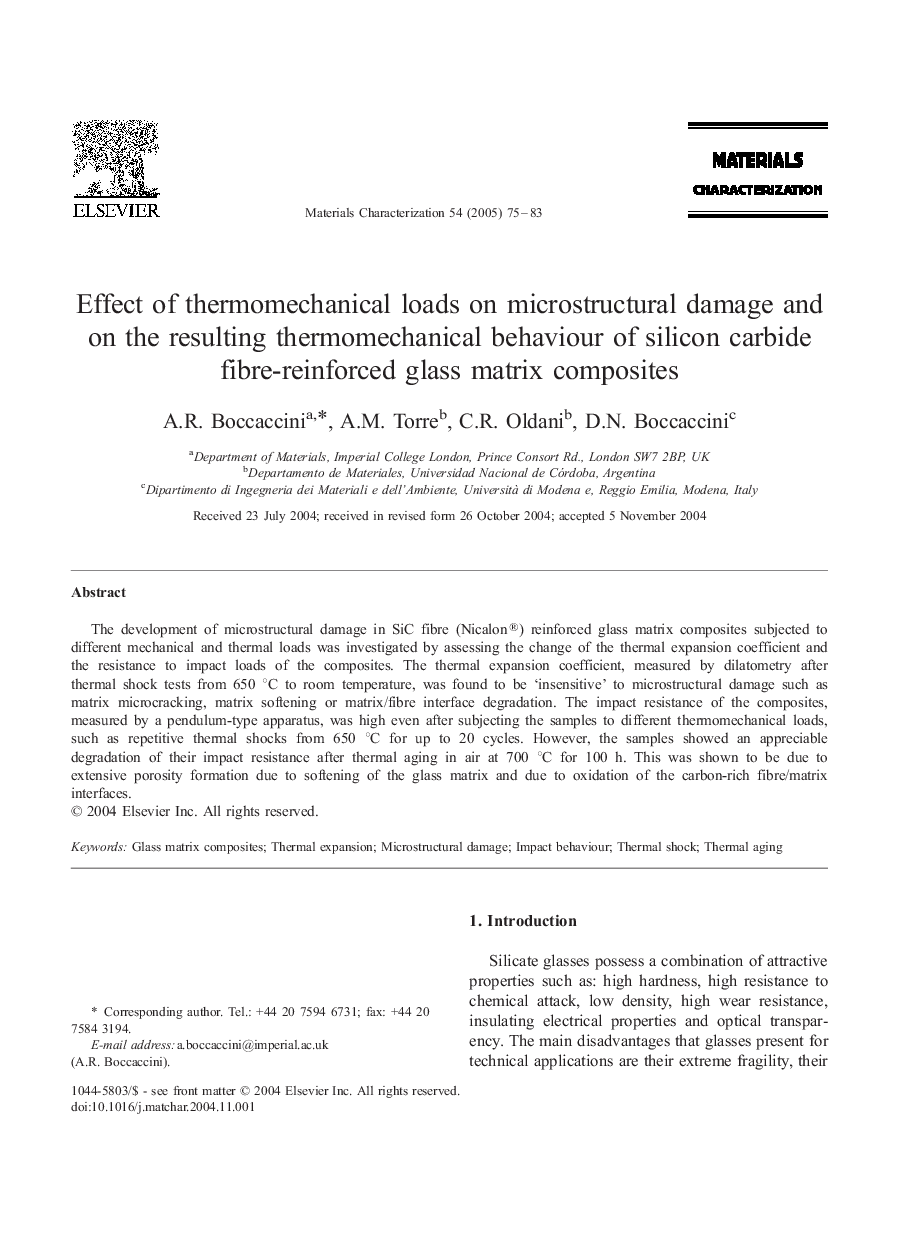| Article ID | Journal | Published Year | Pages | File Type |
|---|---|---|---|---|
| 10645791 | Materials Characterization | 2005 | 9 Pages |
Abstract
The development of microstructural damage in SiC fibre (Nicalon®) reinforced glass matrix composites subjected to different mechanical and thermal loads was investigated by assessing the change of the thermal expansion coefficient and the resistance to impact loads of the composites. The thermal expansion coefficient, measured by dilatometry after thermal shock tests from 650 °C to room temperature, was found to be 'insensitive' to microstructural damage such as matrix microcracking, matrix softening or matrix/fibre interface degradation. The impact resistance of the composites, measured by a pendulum-type apparatus, was high even after subjecting the samples to different thermomechanical loads, such as repetitive thermal shocks from 650 °C for up to 20 cycles. However, the samples showed an appreciable degradation of their impact resistance after thermal aging in air at 700 °C for 100 h. This was shown to be due to extensive porosity formation due to softening of the glass matrix and due to oxidation of the carbon-rich fibre/matrix interfaces.
Keywords
Related Topics
Physical Sciences and Engineering
Materials Science
Materials Science (General)
Authors
A.R. Boccaccini, A.M. Torre, C.R. Oldani, D.N. Boccaccini,
